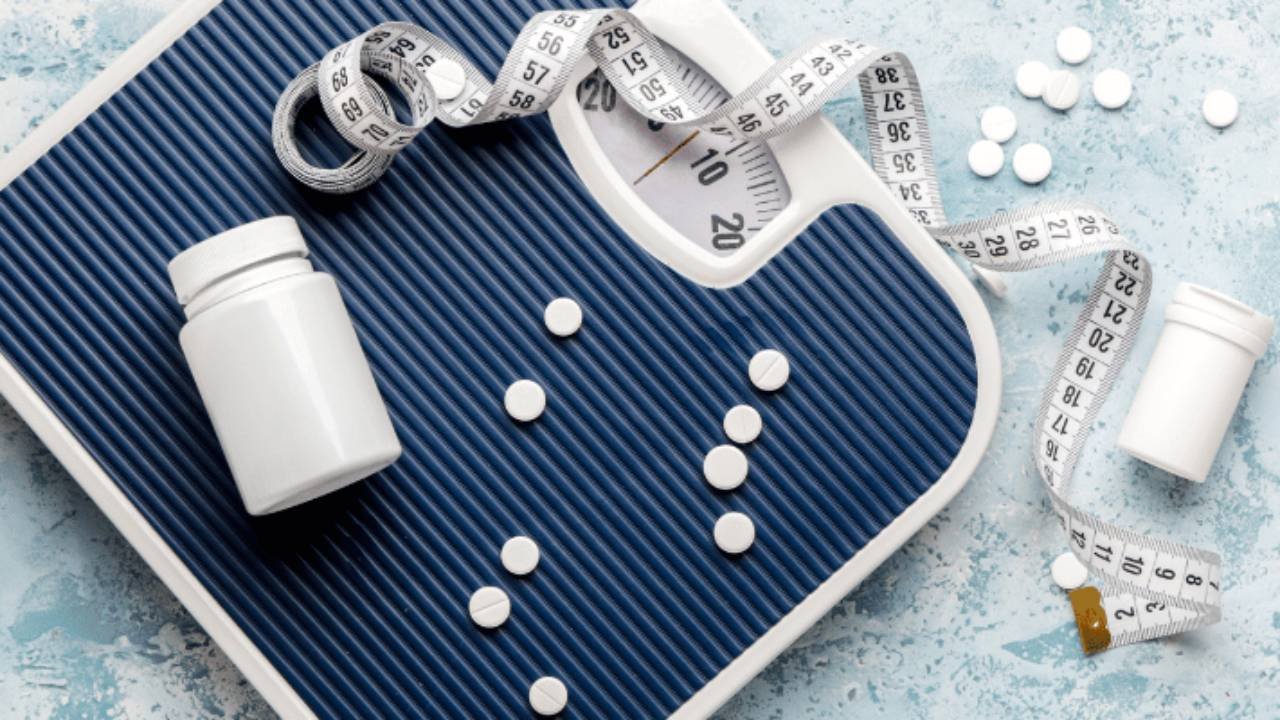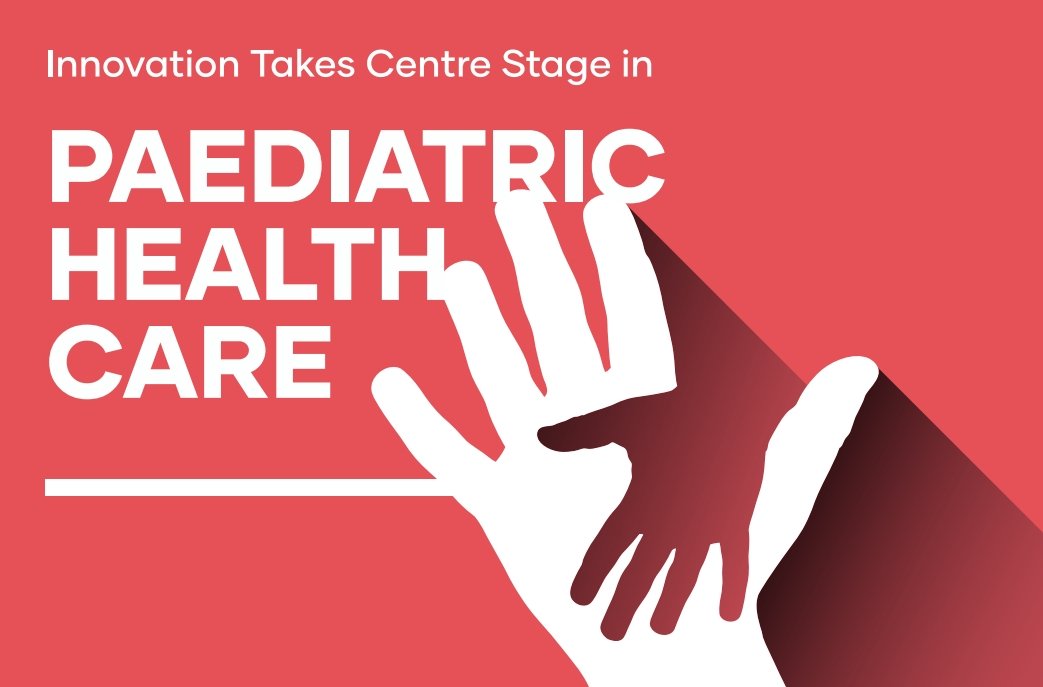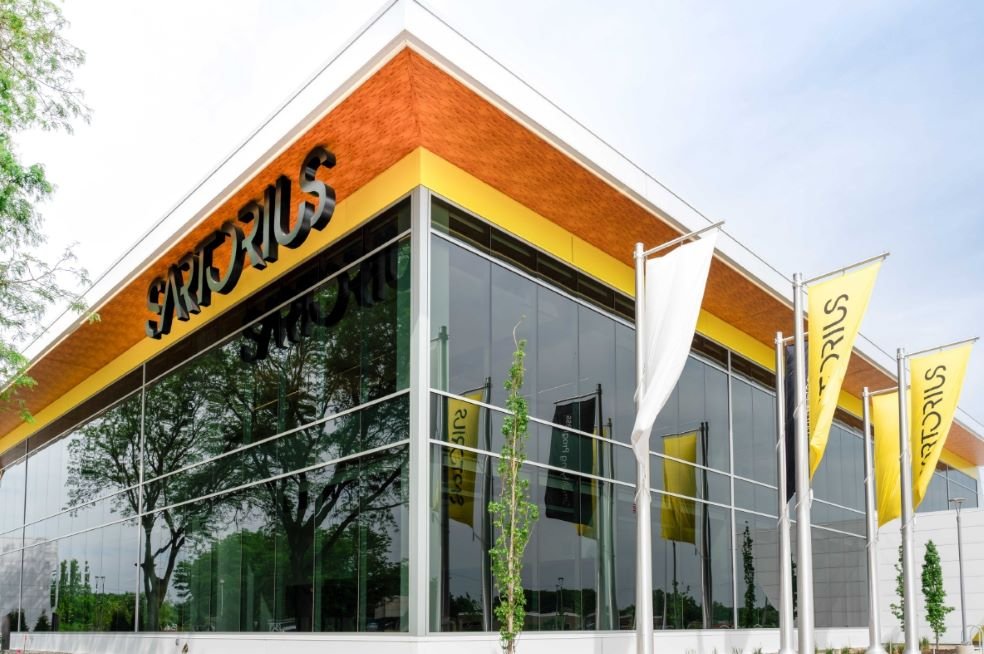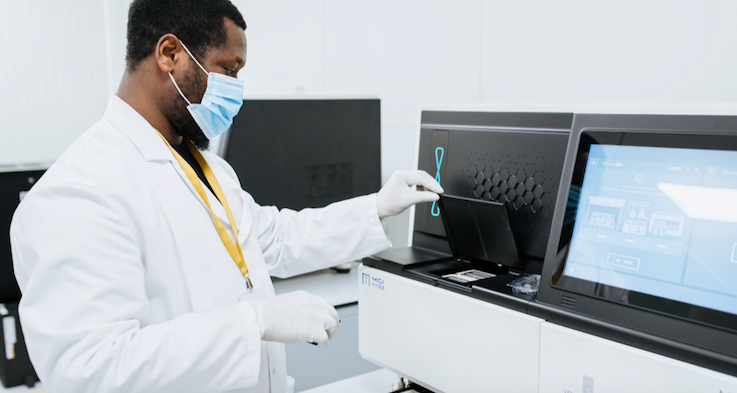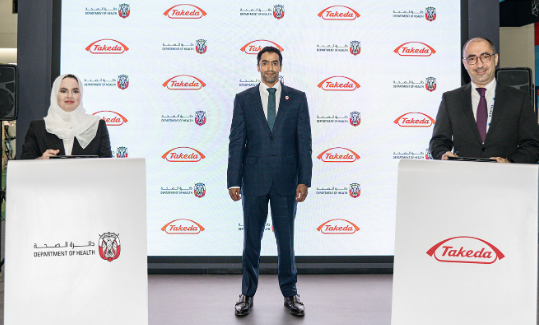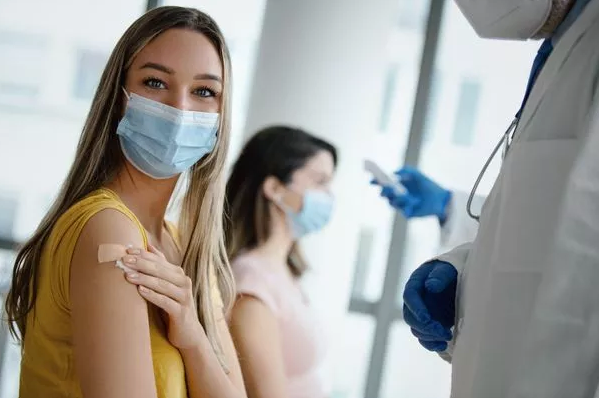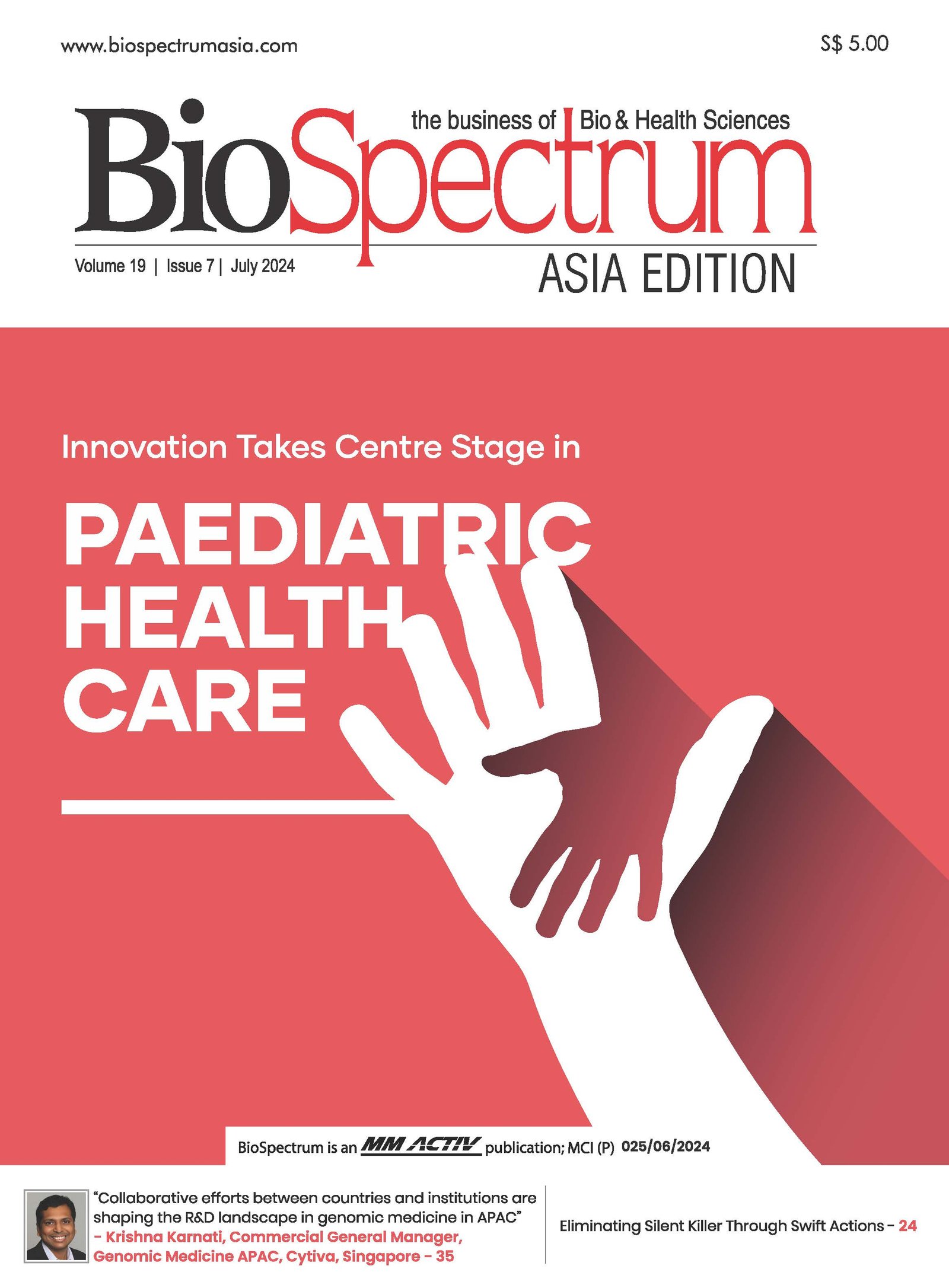Why Singapore is Deep Tech Innovation Frontrunner
01 March 2024 | Analysis | By Ayesha Siddiqui
Move over Artificial Intelligence (AI) and Machine Learning (ML), there's a new technology on the block - Deep Tech. This latest technology holds immense potential for the life sciences industry, and Singapore is leaving no stone unturned in becoming a deep tech hub. From strategic investments to collaborative initiatives and a supportive regulatory environment, read on to find out about the country’s initiatives in becoming a deep tech superpower.

image credit- shutterstock
Singapore has emerged as a significant player in the global deep tech landscape. Over the past decade, the government has committed more than S$19 billion to advance research and development in deep tech, according to the Sparkmate report.
There are several initiatives aimed to strengthen the startup landscape in this sector. One key initiative driving Singapore's deep tech agenda is the Singapore Deep-Tech Alliance (SDTA), which facilitates partnerships and provides avenues for companies to create new startups, bring existing ones to market, find solutions to challenges, and access protected technologies. This initiative enhances collaboration and accelerates the growth of deep tech ventures within Singapore's ecosystem.
In addition, Singapore launched A*StartCentral (A*SC) in 2016, a first-of-its-kind open innovation platform by the Agency for Science Technology and Research (A*STAR). It aims to incubate and accelerate the growth of deep tech startups, and serves to bolster the startup ecosystem, including areas such as medtech and life sciences. Now it has over 150 deep tech startups.
A*StartCentral (A*SC), a key player in Singapore's deep tech ecosystem, empowers early-stage startups in their entrepreneurial journey. By providing guidance and support, A*StartCentral enables startups to expand beyond Singapore and tap into global markets, fostering innovation and entrepreneurship on an international scale.
A*SC builds upon the foundation of an open innovation community to foster cross-pollination and interaction amongst researchers, corporates, startups, investors and entrepreneurs across diverse disciplines. A*SC will continue to inspire, innovate with, and empower researcher- entrepreneurs in building successful, deep technology enabled ventures.
To accelerate the creation of successful deep tech startups from the pipeline of research, Temasek, a global investment company owned by the Government of Singapore in September last signed a Memorandum of Understanding (MoU) with National University of Singapore (NUS) and Nanyang Technological University (NTU) to embark on a joint S$75 million pilot programme.
In this initiative Temasek will invest S$65 million, through Xora Innovation (Xora), an early-stage deep tech investing platform of Temasek, into the deep tech startups, while NUS and NTU will each invest S$5 million in this effort. Temasek and Xora will collaborate with the two universities to launch and build globally competitive ventures with strong potential to address large global market opportunities in areas such as Energy Transition, Biotechnology, and the Future of Compute and Cognition.
According to a report released by SGInnovate, the number of biotech companies in Singapore is expected to grow by more than 60 per cent over the next 10 years, but a talent shortage continues to pose challenges for organisations in this sector.
To address the talent crunch issue, SGInnovate launched Deep Tech Central (DTC), Singapore’s only one-stop gateway addressing talent and startups needs in this fast-growing emerging tech ecosystem. In January last SGInnovate started another initiative called Deep Tech Talent Central (DTTC), an integrated strategy for solving talent challenges across emerging tech sectors.
DTTC serves as Singapore's premier talent gateway, fostering skill development and catalysing the growth of the deep tech job market. Furthermore, SGInnovate opened the Helix Immersion Programme (HIP) that aims to train and place over 100 candidates with biotech startups and companies by 2025, providing invaluable industry experience and addressing skill gaps in the workforce.
These efforts seem to be paying off. Between January 2020 and June 2023, 86 per cent of the total deep tech deals in the region happened in Singapore, attracting 96 per cent of the overall proceeds. Notably, one in four deep tech deals was in health tech, absorbing over half of the total investment value, according to a new report from DealStreetAsia.
“We are seeing early encouraging signs. While our funding landscape has not been completely spared by the funding winter, Singapore saw a 36 per cent year-on-year increase in deep tech deals (January-September 2023), which accounted for three quarters of the total deep tech deal volume in Southeast Asia. To ensure continued liquidity, partners such as SEEDS Capital will anchor and partner more global VCs to co-invest in promising startups,” said Emily Liew, Assistant Chief Executive Officer, Innovation & Enterprise Services, Enterprise Singapore.
Although deep tech has gained momentum in recent times, Singapore has been focusing on it for the past few decades.
“Deep tech is not new to Singapore. The Singapore Government has put in sustained investment in Research, Innovation and Enterprise (RIE) domains over the past three decades, building a pool of deep scientific capabilities and talent in our research-intensive universities and A*STAR research institutes. Singapore has nearly 40,000 research scientists and engineers in our ecosystem today, working in fields spanning quantum engineering, precision medicine and renewable energy,” said Emily.
Looking forward
There is still vast untapped potential in deep tech. Startups are inherently dynamic and agile, unencumbered by the rigid structures and processes of larger firms, and can be laser-focused on developing novel technologies.
“We have done well to set up an ecosystem that supports startup agility and development. In 2023, Singapore placed eighth in the world in Startup Genome’s Global Startup Ecosystem Ranking. Similarly, in Startup Blink’s Global Startup Ecosystem Index, Singapore ranked first in Southeast Asia, and sixth worldwide,” said Emily.
But deep tech venture building is a wholly different game. Such technologies require a long gestation, significant amounts of patient capital, and deep expertise from scientific research to business leadership.
“Because of the considerable resources needed, our approach must be targeted and deepen Singapore’s strengths. We need VCs and investors who understand deep tech and have the expertise to help the startups make breakthroughs and scale their business. Biotech is one such area,” said Emily.
Singapore’s deep tech ecosystem benefits from the support of a growing, closely interconnected network of stakeholders, including founders, researchers, investors, government partners and more.
“There is also strong recognition at the policy level that Deep Tech – and our wider research, innovation and enterprise activities – remain crucial to Singapore’s continued development, with an additional S$3 billion committed to the RIE2025 plan in our latest Budget announcements. Beyond financial measures, this acknowledgement of the importance of science and research also underpins effective public-private partnerships, with different players in the ecosystem allowed to contribute efficiently to the overall growth of the ecosystem,” said Dr Vanessa Ding, Director – Talent (Health & Human Potential), SGInnovate.
The collective efforts of government agencies, industry players, and academic institutions have positioned Singapore as a leading hub for deep tech innovation.
Innovative deep tech startups
Several innovative deep tech startups in Singapore are addressing a range of challenges, including precision medicines, cancer diagnostics, and novel drug delivery platforms. Some of the prominent ones include-
Mesh Bio is revolutionising chronic disease management with predictive analytics. Recently, it secured undisclosed funding from East Ventures to enhance its digital twin technologies and expand services across Southeast Asia, focusing on Indonesia, Malaysia, and the Philippines.
E3A specialises in innovative healthcare devices and management solutions for newborns and women. Its YSJ series smart newborn jaundice metres have received Class II medical device clearance from the National Medical Products Administration (NMPA). The firm pioneered the rental model for at-home jaundice monitoring and currently serves over 120 hospitals across China, covering over 500,000 newborns annually. Additionally, E3A plans to launch its first women's health device in 2024.
Mirxes, leads in RNA technology, specialising in accurate, non-invasive, and affordable blood-based miRNA test kits for early disease detection, notably cancer. The company recently concluded its Series D funding round, securing $50 million. Its flagship product, GASTROClear, a PCR-based in vitro diagnostic test for early gastric cancer detection, has attained Breakthrough Device Designation from the US regulator. This marks the first instance globally where a blood miRNA test, an IVD test for early gastric cancer detection, and a molecular IVD test from Southeast Asia have received such designation from the US FDA.
ACM BioLabs is utilising its proprietary thermostable polymer-based nanoparticle delivery platform to develop new formulations across various therapeutic fields. Their Tunable Platform (ATP) is a polymer/lipid hybrid, non-viral delivery system offering flexibility to deliver oligonucleotides, small molecules, proteins, and mRNA payloads.
KYAN Technologies received licensing approval for its advanced clinical laboratory facility. The approval enables the offering of Optim.AI, a functional precision medicine test, aiding oncologists in treatment decisions. The lab will conduct Laboratory Developed Tests (LDTs) for lymphoma initially, expanding to other cancer types like colorectal and breast cancer. Additionally, the platform will support biopharma services, fostering the development of novel biopharmaceutical assets.
Aproxy is a medtech company dedicated to decentralising healthcare diagnostics with its point-of-care detection platform. The company aims to bring lab quality diagnostics closer to the patient via its patented immunoassay technology, SimpleProx. Using just a single drop of blood, specific immune biomarkers can be quantified with lab-level accuracy in 15 minutes and a single-step operation. The company is currently finalising its prototype.
StratifiCare is dedicated to advancing personalised medicine through innovative diagnostic solutions. Leveraging predictive protein diagnostics and AI, the company aims to enhance patient outcomes. Its pipeline includes tests for severe dengue complications and the efficacy of internal radiation therapy for liver cancer. Collaborating with a Singaporean national clinical laboratory, StratifiCare plans to introduce the world's first severe dengue prediction test to the market in late 2024.
Ayesha Siddiqui



